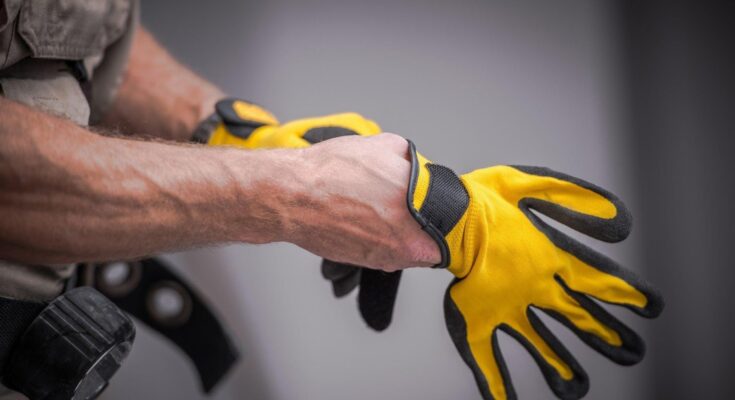Are you worried about what type of gloves protects your hands from hazardous chemicals?
While most gloves protect your hands against infections, their protective use can extend to other things too. A classic example of this comes with gloves used in chemistry labs — however, this doesn’t limit to a single type.
With that said, we’ll be going over what you should look for in a pair of chemical gloves. Read on and be sure to note what these gloves are.
Nitrile Gloves
Nitrile gloves offer a great option for protecting hands from chemical hazards. These gloves are constructed from synthetic rubber, which is known for its durability and ability to remain puncture resistant. Nitrile gloves have a high level of permeation resistance, meaning they can protect hands from a variety of harsh chemicals.
Additionally, these chemical safety gloves feature a snug fit due to their form-fitted design, so that chemicals remain on the glove, away from the hands. Nitrile gloves come in different sizes, so there is a glove to fit most hands. The glove is also available in a powdered, powder-free, or exam variety to offer a glove option for a variety of applications.
Neoprene Gloves
Neoprene gloves are an ideal option for protecting your hands from hazardous chemicals. Made from synthetic rubber, neoprene gloves provide excellent protection against a wide variety of chemicals. This includes oil-based solvents and inorganic acids.
The gloves also provide superior flexibility and comfort, which makes them ideal for prolonged use. The gloves also feature an interior lining, which prevents water and chemicals from seeping through their nonporous surface. Additionally, the neoprene glove’s tight fit helps to ensure that no chemical seeps into the pores of your skin.
Butyl rubber Gloves
Butyl rubber gloves are designed to protect hands from hazardous chemicals, including solvents and acids. The material is extremely resilient to caustic and corrosive chemicals. It also provides good tactile sensitivity.
These gloves are airtight and watertight. Thus, providing an extremely good barrier against some of the most hazardous chemicals. The gloves are worn over the hand, up to the sleeve or elbow, depending on the job.
Butyl rubber gloves fit snugly and are comfortable to wear due to their ability to conform to the shape of the hand. They are also puncture resistant and help prevent the potential of skin contact when handling objects like broken glass or sharp metal objects.
PVC (Polyvinyl Chloride) Gloves
PVC polyvinyl chloride gloves are a versatile and effective type of glove for protecting your hands against hazardous chemicals. These gloves are made of strong, flexible plastic. It can protect against a variety of chemicals.
They’re an economical choice for various environments, such as:
- industrial settings
- medical settings
- laboratory settings
- in home settings
- small business settings
They help to provide excellent protection, especially against water-based liquids and aerosols. PVC gloves are available in a variety of sizes and colors to meet most needs. If you are not sure which glove you’ll need in these settings, make sure to view this page and take advantage of some information through an online SDS resource.
Know What Type of Gloves Protects Your Hands From Hazardous Chemicals
Wearing protective gloves when handling hazardous chemicals is vitally important. Knowing what type of gloves protects your hands from hazardous chemicals is equally essential. By selecting the right type of gloves for the job, you can ensure your hands and skin remain safe and protected from potential harm.
Explore our main blog page for more informative reads.



